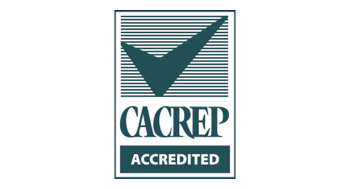Help Others Heal and Overcome
Learn and embody a progressive approach toward treating addiction with another mental health disorder. Through a combination of emerging and evidence-based practices and hands-on fieldwork, you’ll prepare to promote healing and positive outcomes across diverse populations and professional settings. This Adlerian-focused CACREP-accredited program promotes social interest, advocacy, and harmony within you and your practice.
Powerful Integrated Curriculum
This 64–73 credit master’s program features expert-led coursework, internship experience, and an electronic portfolio that reflects and showcases all you’ve learned.
Find Your Mentor
The diverse faculty is the foundation of the Adler Graduate School learning experience. Our faculty are:
- passionate educators with online teaching expertise
- long-time mental health professionals with an array of clinical, leadership, and research experience
- dedicated to supporting your success
Click here to learn more about our faculty.
Licensure Information
Our program prepares you to meet licensure requirements for the licensed alcohol and drug counselor (LADC) and licensed professional clinical counselor (LPCC) credentials in MN. Additional credits are required for dual licensure as LADC and licensed marriage and family therapist (LMFT) in MN. Does our program meet licensure requirements in your state? Contact the state licensure board here.
The Master of Arts in Counseling, Co-Occurring Disorders and Addiction Counseling program is accredited by the Council for Accreditation of Counseling and Related Education Programs (CACREP).

Spotlight
Learn more about our Counseling faculty, students, and alumni.
Your Future
At Adler Graduate School, you’ll experience professional growth and personal transformation. Our graduates build successful and meaningful careers with lifelong support from AGS.
A Day In the Life
Addiction counselors help individuals understand their addictions and behaviors, and manage co-occurring disorders, while guiding them through recovery. You may work with clients in crisis situations, in structured programs, or on an ongoing basis through recovery and beyond. Your practice may look like:
- One-on-one work
- Group sessions
- Family meetings
- Updates and progress reports to courts
- Creating and guiding clients through treatment plans
- Collaborating with other health professionals
Professional Settings
- Mental health clinics
- Private practice
- Hospitals
- Social services
- Residential treatment facilities
- Corrections
- Other community settings
Required Courses
Please refer to our course catalog for the most up-to-date course requirements.
Program Outcomes
All Master of Arts Degree in counseling students graduate with the key skills of a co-occurring disorders and addictions counselor:
- Social Justice and Advocacy: Demonstrate the knowledge, skills, and practices to deliver culturally appropriate counseling services, advocate for clients, and understand how to influence policy to enhance the practice of clinical mental health counseling.
- Professional Identity: Show a commitment to their identity as counselors through membership and activities in professional organizations, and through ethical behavior in their work with clients and other professionals.
- Counseling, Prevention, and Intervention: Demonstrate the knowledge, skills, and theory-based practices of culturally appropriate diagnosis, treatment, referral, and prevention of mental and emotional disorders.
- Assessment and Diagnosis: Demonstrate the knowledge, skills, and practices of culturally appropriate and holistic clinical assessment and diagnosis of both psychopathology and normal developmental challenges, including appropriate use of diagnosis during trauma-causing events.
- Ethical Decision-Making: Demonstrate competent use of ethical frameworks and methods to make ethical decisions across clinical care settings.
- Research and Evaluation: Competently and critically evaluate clinical mental health counseling research, demonstrate understanding of evidence-based treatments and outcome evaluation, and apply appropriate models of program evaluation.


